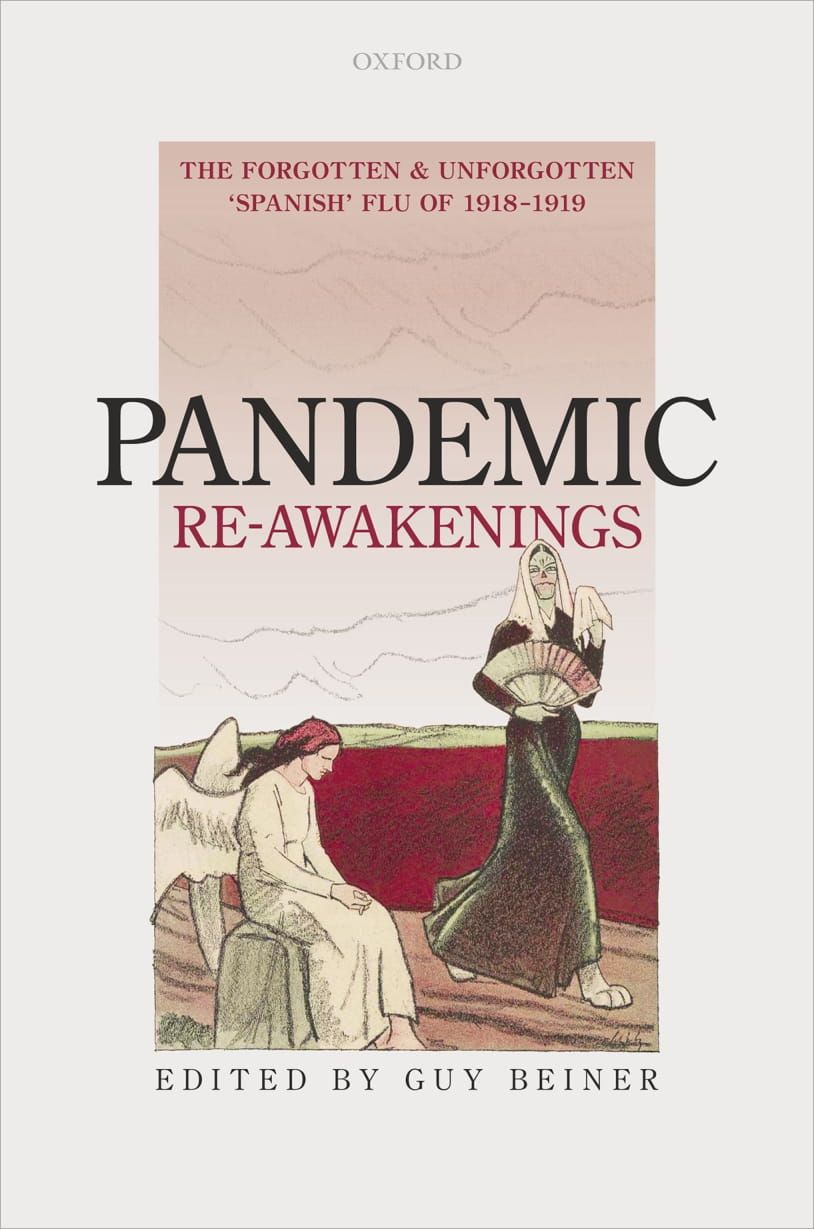On Sept. 14, Dr. Guy Beiner, a professor of history and chair of Irish Studies at Boston College, visited UWG to deliver his talk titled “Remembering the Forgotten Pandemic: The Spanish Flu and What It Tells Us about COVID.”
“[The talk] relates to a book which I edited recently which came out a few months ago, and it’s called ‘Pandemic Re-Awakenings: The Forgotten and Unforgotten ‘Spanish’ Flu of 1918-1919,’” said Beiner. “It brings together a remarkable collaboration of researchers from around the globe to look at this phenomena of not just the Spanish Flu, which has become a topic of interest in recent years but more specifically, it’s the first book which actually addresses systematically around the world how it was remembered, forgotten and rediscovered over a century.”
Even before the worldwide shutdowns in March 2020, Beiner had been studying the Spanish Flu and specifically why the event was so widely forgotten despite its imprint.
“This great flu pandemic was the biggest catastrophe in a similar timeframe in the whole history of civilization,” said Beiner. “[Spanish Flu] killed more than any other event in history: more than WWI, WWII, more than the gulags of Communism, more than any of the events we can think of.
The Spanish Flu, also called H1N1, took over 50 million lives and infected over half the world’s population but held little attention or historiography, which is historical written records.
“The 20th century was known for its catastrophes, yet this was bigger than all of them,” said Beiner. “It’s a big puzzle. Because when you look at history books of the 20th century, it was barely mentioned up until recently. If it was mentioned, it was in a couple of sentences, maybe a couple paragraphs or brief references.”
Beiner studies and observes how society remembers or choses to forget certain events, and how they choose to memorialize events. Essentially, Beiner’s academic work sprouted from the Memory Boom in the 1980s and 1990s even before he was a student.
“People are interested in why we’re so obsessed with memory: Memory of the past,” said Beiner. “[Memory is] a huge field. Often used under the word ‘collective memory.’ But I don’t really like the term. I use ‘social memory,’ sometimes ‘cultural memory,’ but this has been a huge field throughout the humanities and social sciences.
“For years before [the pandemic] I would go around campuses and say ‘Do you know anything about the Spanish Flu?’ [They would be] blank,” continued Beiner. “I ask, ‘what is the biggest killer of the 20th century?’ Hitler. Stalin. Not a virus. So we’ve changed our perception after Covid. Now we have a new historical consciousness. An awareness of the impact of pandemics.”
Beiner initially pitched “Pandemic Re-Awakenings” before 2020 but received pushback from his publicist considering the low demand and near non-existent audience for the subject. However, with the Covid’s grand entrance, the book became a necessity in the scholarly realm.
“What changed our perception was of course the outbreak of Covid,” said Beiner. “Since Google began taking statistics of 2004— I had been looking at this for years since I was a student— and what we see most of the time, hardly anyone searched the words Spanish Flu. A small group of people. Very very little. But the date that the world turned to look for Spanish Flu was exactly March 2020. All countries around the world.”
The influenza outbreak waned into the 1920s with lesser social prominence. Much like today’s age, pandemic fatigue set in two years after the pandemic which leads Beiner to question and speculate how Covid will be remembered similarly.
“Are we going to be obsessed with Covid now?” said Beiner. “We’re already trying to move on, nobody wants to wear a mask, we want to move on. People died in Covid but we move on.”
The 1918 pandemic’s re-discovery in the mainstream memory helped in some way to cope with the 2020 pandemic.
You may also like
-
UWG Fails to Protect Student Safety From Radical Conservative Rhetoric Under the Guise of Free Speech
-
Georgia Students Simulate the Struggles of Dementia
-
UWG’s Art Atelier Creates Interactive Mural for the Children of the Early Learning Center
-
UWG Hosts Rapha Clinic Annual 5K Fundraiser
-
Abortion Debate Continues as Georgia House Considers House Bill Defining Life at Conception
